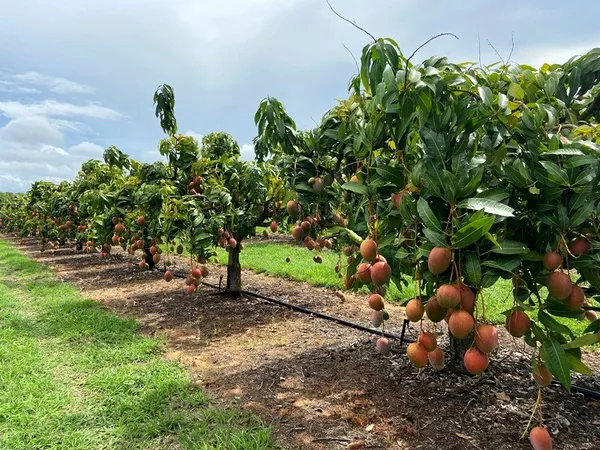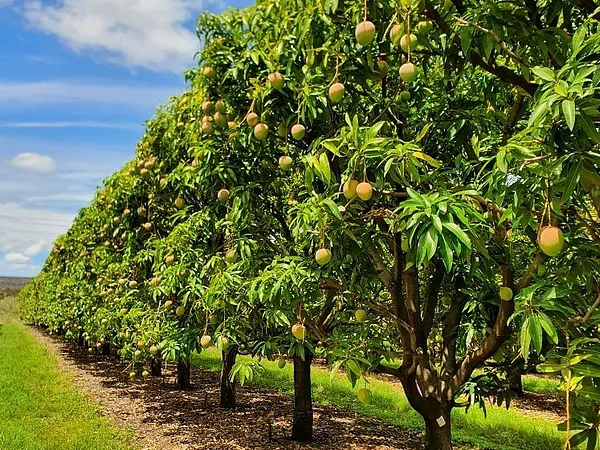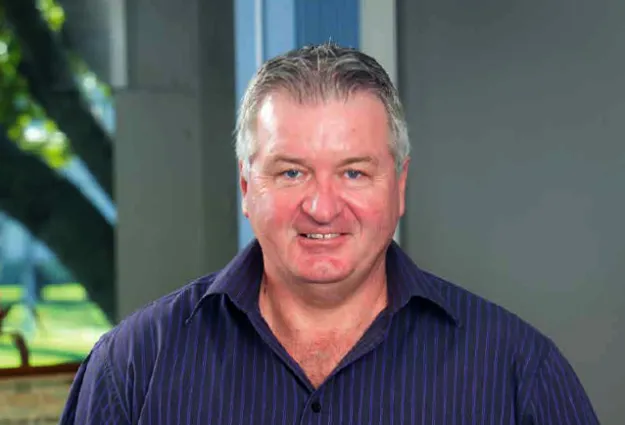The new Australian Mango Industry Association (AMIA) Chief Executive says he is looking to capitalise on strong domestic demand for the fruit as the foundation for the growth.
Brett Kelly says the industry is in a fortunate position where the demand is always going to be there and only going to grow into the future. Despite a season where there were challenges due to the COVID-19 pandemic, 8.2 million trays were produced in the 2020-21 season.
"The issues that we are dealing with are not going to go away in a short period of time, I think it will get better in the way that they are managed," he said. "It's a new world and we have to adapt to that in terms of working around this situation. I still believe the growth potential domestically is huge. I think the domestic market is always your foundation, and we need to get that right. So, we need to get our plans right domestically, then we need to work in parallel with the export market, which should be the icing on the cake. We will have some supply chain challenges with the pandemic, but ultimately it has put a shock into people and they want a fresh local product, which provides us with an opportunity."

Mr Kelly has had previous experience in retail and business management roles in the berry, dairy and pharmaceutical sectors, before taking over as CEO of the AMIA from Robert Gray three months ago. He is looking to bring that extensive experience into the mango industry.
"I can see the Australian mango industry has huge potential, and I am a true believer in putting the focus on the farmers/growers," he said. "I have used that strategy before when building horticulture businesses; farmers are held in the highest esteem in Australia and if you can tie in second, third, fourth generation etc. with the right product and the quality and all the compliance, you have a competitive edge. When you go into export, you have an even bigger opportunity. So that's why I am trying to learn what I can about the industry and meet as many of the growers as I can."

He explains that the qualities of the Australian mango are unique, and it has to be positioned to go upstream given the seasonal window, and the consumer demand. He is encouraging industry members to understand their market and opportunities to increase their returns from good business practices.
"When you look at the farmer/growers, your on-farm costs, supply costs, compliance, quality insurance and all that sort of thing, they are critical, but the key is the front end," Mr Kelly said. "So, brand positioning; the story and marketing. I am a strong believer in contracts and as a farmer/grower, you have to understand the consumer and you need to have contracts directly with retailers that encompasses all the issues. For example, if you are dealing with a retailer, you need to negotiate a deal that has all the quality and compliance built-in that is connected, so that you know if you reach this standard, you'll get a certain bottom line. That motivates the grower, so as their costs go up, their margin and price go up. We have a unique, beautiful product, so when you put a story behind it that it is coming out of Australia, it's like putting all the pieces of the puzzle together."

Mr Kelly attended the Northern Australia Food Futures Conference in Darwin, the region that begins Australia's mango season in July. He says it is critical to the industry, given the majority of the fruit is grown in the northern states of Australia.
"I was always a big fan of the Northern Territory, and nearly moved here once," he said. "I always thought it was like the last frontier, as there is so much opportunity. From a grower perspective, it is a really important region, but for me, it's about getting the collective synergy approach. So, if we have a common denominator and we are moving in the right direction, in the next 5-10 years we can start seeing some incredible results."
It was an interesting time for Mr Kelly to step into the role, given the challenges brought on by the COVID-19 pandemic, but he sees all disruptions in terms of the opportunities that they offer.
"In terms of business, I am a believer in that real money never disappears, it only changes hands," he said. "You just have to find whose hand it's in. During this time there has been a lot of hurt, pain, change and adaption - but my personal belief is that it is creating a huge opportunity for Australian growers. The reason for this is that no one has really been in this situation; we have been locked down, there have been shortages, supermarket sales have gone through the roof because their biggest challenge has been filling stock. If you have a good quality Australian-farmed product it is going to be even more sought after, not just here but around the world, if you get your strategy right."
The industry is also working on its Strategic Investment Plan (SIP), which is aiming for completion by the end of June, and Mr Kelly says the key issue for the AMIA will be; "to get traction for our growers, and keep the focus on creating a better sustainable future for our growers."
For more information
Brett Kelly
Australian Mango Industry Association
Phone: +61 7 3278 3755
ceo@mangoes.net.au
www.mangoes.net.au
